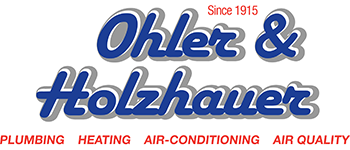
Ever done a double take when you viewed your last energy bill? Even though high energy bills can be the result of extreme weather conditions, repeatedly high bills can often indicate an inefficient HVAC system or your home is misusing energy by other means, including drafty windows or insufficient insulation.
An easy way to figure out whether your home is using too much energy is by calling a home service specialist to perform a home energy audit, also known as a home energy assessment. Keep reading to find out more about home energy audits, including what they are and their key elements.
What Is a Home Energy Audit?
An energy audit is a custom inspection of how much energy your home uses up and whether – and where – your home may be losing or wasting energy. An inspector will go through older energy bills while completing an energy audit to find out where energy is being consumed and how much.
The general goal of an energy audit is to help homeowners save money on their energy bills by suggesting energy-efficient renovations, which might include swapping out your current HVAC system, adding new insulation, sealing up leaks, or replacing loose windows.
During the energy assessment, the auditor also completes an inspection of the outside and inside of your home. The auditor completes a blower door test on doorways, windows and fireplaces to find out if there are air leaks in your home. They’ll also evaluate your home’s HVAC system, as well as the ductwork, the water heater, and the insulation in your attic. Exhaustive assessments could also include inspecting your current lighting system.
Benefits of a Home Energy Audit
It can be hard for the average homeowner to be sure how efficient their home is in comparison to other similar homes in their area. However, many energy companies often supply information about where your home is ranked when compared with similar homes and whether it’s more efficient, about average, or inefficient in contrast with your neighbors’ homes. This is a great starting point to determine if you need an energy audit completed.
A few of the benefits of a home energy audit include:
Recognizing How Efficient Your Home Is
It’s worthwhile to understand how efficient your home is and where you’re using up the most energy. For example, if your ducts are leaking, it can cause a significant increase in your energy bills and additional wear and tear on your HVAC system as it has to stay on longer to properly heat or cool your home.
Making Energy-Efficient Upgrades
An energy audit can reveal where you need to make energy-efficient changes to save on energy and lower utility bills. This can include replacing worn weatherstripping or buying a new energy-efficient furnace.
Enhancing Health and Safety
Allowing air to seep into your home through doors and windows, or as a result of a lack of insulation can cause extra moisture to form, which could negatively impact your home’s humidity levels or encourage mold. This can exacerbate health issues, particularly for people suffering from asthma or allergies.
Raising Your Home’s Retail Value
Energy-efficient homes are sought after by homebuyers. You can sell your home sooner or for more money by telling possible buyers that it’s energy efficient.
How to Complete an Energy Audit of Your Home
Although handling an energy audit by yourself might not be as comprehensive as hiring a professional, it’ll offer a general understanding of how energy efficient your home is. If you don’t discover any issues during the DIY test, then you probably don’t need to hire a professional. Use this step-by-step checklist:
- Review your HVAC system. Broken ducts can lose up to 20% of conditioned air, resulting in more expensive energy bills and excess strain on HVAC equipment. If you notice leaks, use duct tape to close them. If your HVAC equipment is old and inefficient, upgrading to a new system can save you a substantial amount on your energy bills. In some cases, it can be better to contact a reputable HVAC company to inspect your system.
- Check for air leaks. Air leaks on average can raise monthly energy bills by 10 to 20%. Inside, look for air leaks in areas where there could be a draft, like along the edge of flooring and close to baseboards and electrical outlets. Outside, you can inspect for air leaks in the home’s foundation, siding and mortar. Plug, caulk or seal any air leaks to save money.
- Examine insulation. If your home is older, it could mean your insulation is too. If you can see the joists, you likely need more insulation.
- Check ventilation. Make sure that all of your kitchen and bathroom exhaust fans are functioning properly, and check for evidence of rot or moisture.
Contact Ohler & Holzhauer Inc. for a Professional Energy Audit
If you want professional help figuring out how energy efficient your heating and cooling equipment is, call the HVAC pros at Ohler & Holzhauer Inc. today. We’ve proudly served the residents of Port Clinton with quality home services for many years. Contact us today to request an appointment.
